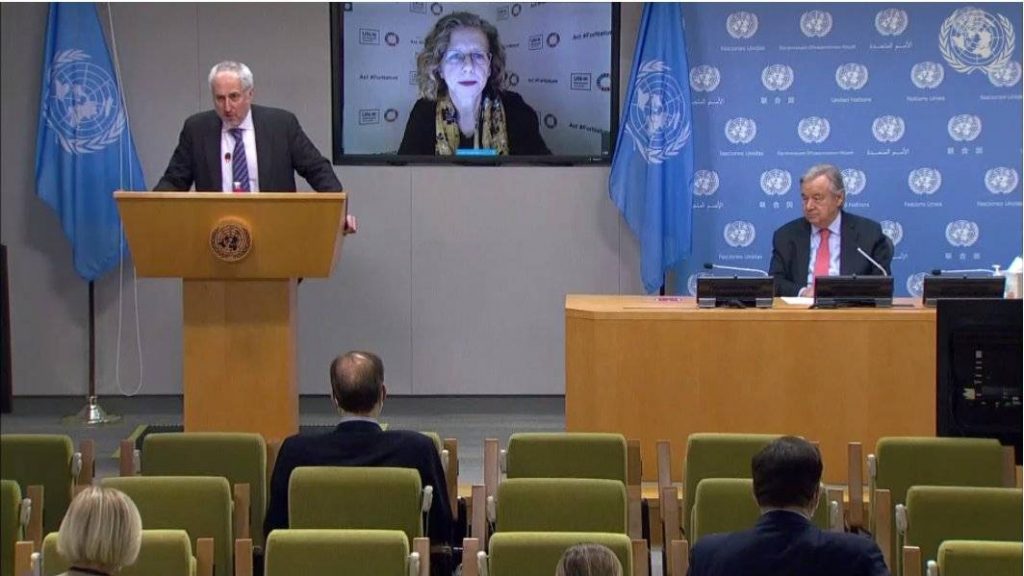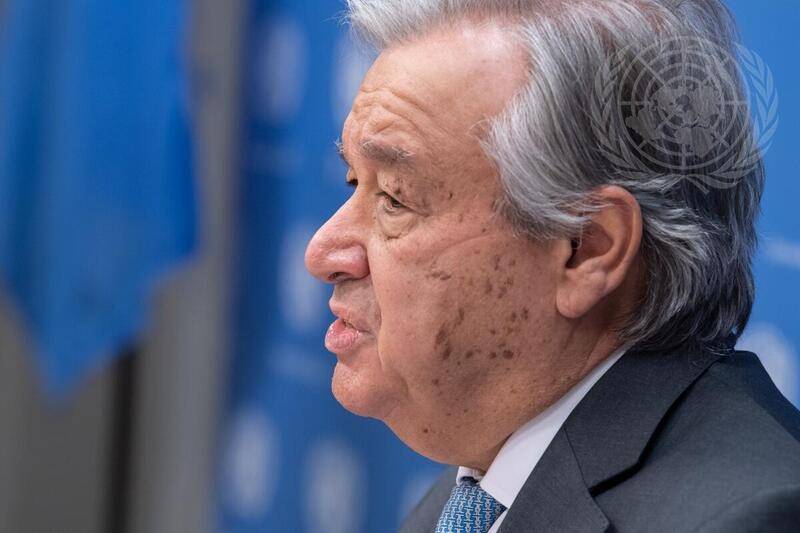The report, ‘Making Peace with Nature’, offers a comprehensive blueprint for addressing the triple planetary emergency….reports Asian Lite News
A new report by the UN Environment Programme (UNEP) said on Thursday that the world can transform its relationship with nature and tackle the climate, biodiversity and pollution crises together to secure a sustainable future and prevent future pandemics.
The report, ‘Making Peace with Nature’, offers a comprehensive blueprint for addressing the triple planetary emergency.
It lays out the gravity of these three environmental crises by drawing on global assessments, including those from the Intergovernmental Panel on Climate Change and the Intergovernmental Science-Policy Platform for Biodiversity and Ecosystem Services, as well as UNEP’s Global Environment Outlook report, the UNEP International Resource Panel, and new findings on the emergence of zoonotic diseases such as Covid-19.
The authors assess the links between multiple environmental and development challenges, and explain how advances in science and bold policymaking can open a pathway towards the achievement of the Sustainable Development Goals by 2030 and a carbon neutral world by 2050 while bending the curve on biodiversity loss and curbing pollution and waste.
Taking that path means innovation and investment only in activities that protect both people and nature. Success will include restored ecosystems and healthier lives as well as a stable climate.
“By bringing together the latest scientific evidence showing the impacts and threats of the climate emergency, the biodiversity crisis and the pollution that kills millions of people every year, this report makes clear that our war on nature has left the planet broken,” UN Secretary-General AntAnio Guterres said in the report’s foreword.
“But it also guides us to a safer place by providing a peace plan and a post-war rebuilding programme. By transforming how we view nature, we can recognize its true value. By reflecting this value in policies, plans and economic systems, we can channel investments into activities that restore nature and are rewarded for it,” he added.

“By recognising nature as an indispensable ally, we can unleash human ingenuity in the service of sustainability and secure our own health and well-being alongside that of the planet,” he said.
Amid a wave of investment to re-energise economies hit by the Covid-19 pandemic, the blueprint communicates the opportunity and urgency for ambitious and immediate action.
It also lays out the roles that everyone — from governments and businesses to communities and individuals — can and must play.
The year 2021 is especially crucial, with upcoming climate and biodiversity convention meetings — UNFCCC COP 26 and CBD COP 15 — where governments must come up with synergistic and ambitious targets to safeguard the planet by almost halving greenhouse gas emissions in this decade, and by conserving and restoring biodiversity.
Economic growth has brought uneven gains in prosperity to a fast-growing global population, leaving 1.3 billion people poor, while tripling the extraction of natural resources to damaging levels and creating a planetary emergency.
Despite a temporary decline in emissions due to the pandemic, the earth is heading for at least three degrees Celsius of global warming this century; more than oneA million of the estimated eight million plant and animal species are at substantially increased risk of extinction; and diseases caused by pollution are currently killing some nine million people prematurely every year.
Environmental degradation is impeding progress towards ending poverty and hunger, reducing inequalities and promoting sustainable economic growth, work for all and peaceful and inclusive societies.
The report shows how the trio of environmental emergencies interact and have common causes, and thus can only be effectively addressed together.
Subsidies on fossil fuels, for instance, and prices that leave out environmental costs, are driving the wasteful production and consumption of energy and natural resources that are behind all three problems.
UNEP Executive Director Inger Andersen said the report highlighted the importance of changing mindsets and values, and finding political and technical solutions that measure up to the earth’s environmental crises.
“In showing how the health of people and nature are intertwined, the COVID-19 crisis has underlined the need for a step-change in how we view and value nature. By reflecting that value in decision-making — whether we are talking about economic policy or personal choices — we can bring about a rapid and lasting shift toward sustainability for both people and the environment. Green recovery plans for pandemic-hit economies are an unmissable opportunity to accelerate the transformation,” she said.
Released ahead of the fifth UN Environment Assembly, the report presents a strong case for why and how urgent action should be taken to protect and restore the planet and its climate in a holistic way.
A sustainable future also means learning from the Covid-19 crisis to reduce the threat of pandemic diseases.
The report underlines how ecosystem degradation heightens the risk of pathogens making the jump from animals to humans, and the importance of the ‘One Health’ approach that considers human, animal and planetary health together.
Also read:China rebuts Myanmar rumours
